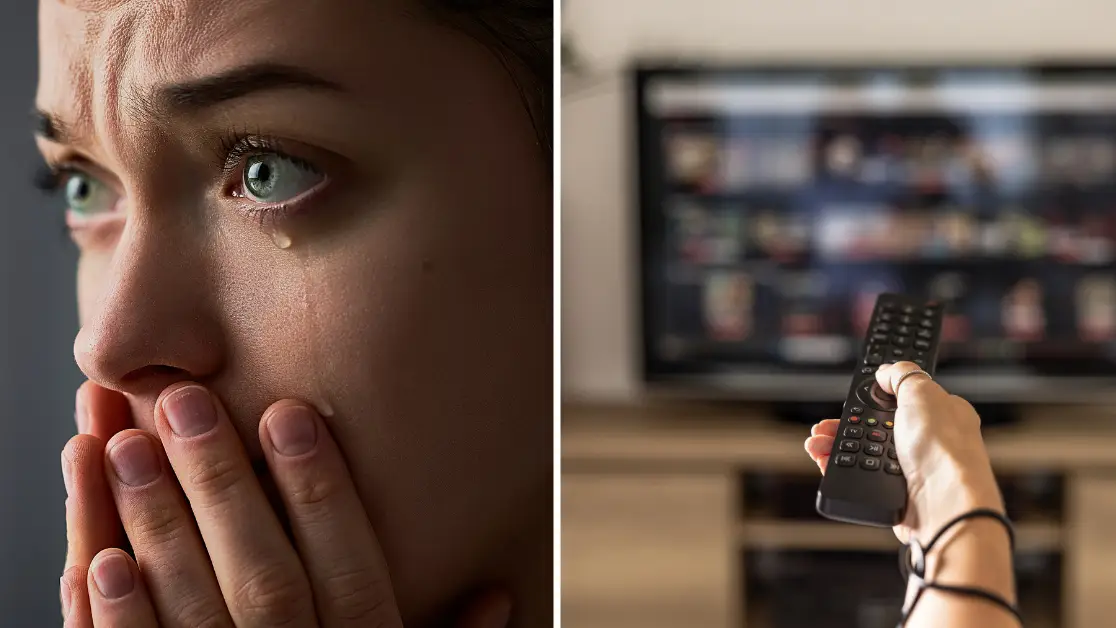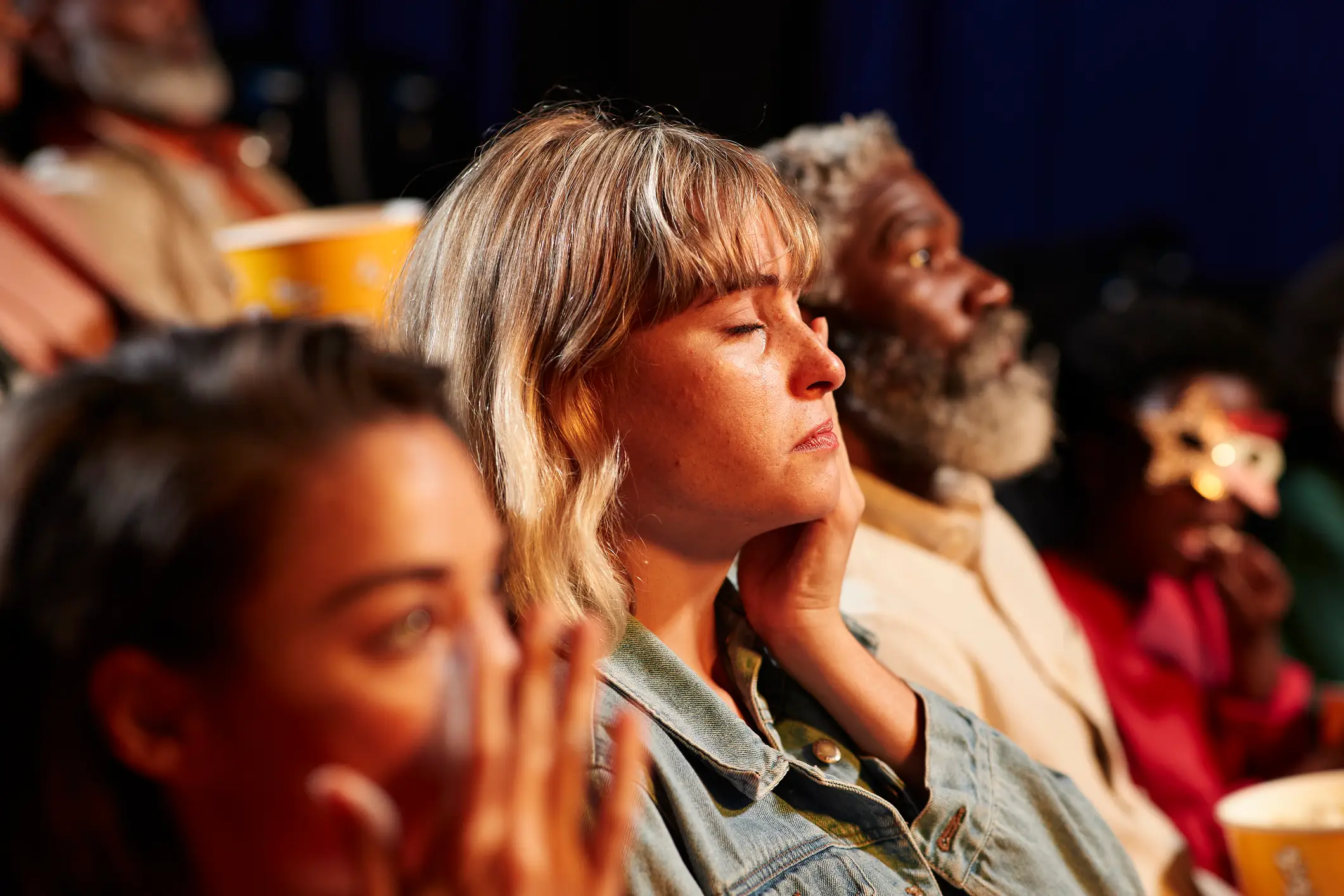Psychiatrists have issued an important message for anyone who cries when watching movies.
Many of us, myself included, are guilty of shedding a few tears when it comes to watching our favourite films.
Whether they're tears of joy after watching a happy ending, tears after a bout of uncontrollable laughter left you in stitches or whether it's absolutely bawling your eyes out when a dog dies - it's clear most of us cry more often than not when watching the telly.
But what's the reason behind this and what does it actually mean?
Do you cry when watching sad movies? (Klaus Vedfelt / Getty Images) Why do we cry when watching movies?
We rationally know that what we're watching on the TV is fictional (most of the time) and that the actors are just doing a cracking job at delivering a very believable experience.
But still, it's clear that loads of people get teary-eyed when watching a couple break up, seeing someone tragically die or being shown an animal getting hurt - despite knowing it's not real.
Well, apparently, it's all to do with oxytocin - AKA the 'love hormone' which is associated with 'heightened feelings of empathy and compassion'.
So, if you cry while watching a particularly sad film, it's a sign that oxytocin has been 'triggered' by the connections you feel due to 'vicarious social' experience, Debra Rickwood, Professor of Psychology at the University of Canberra explains.
She added: "Your attention is captured and emotions elicited by the movie’s story."
Citing a bunch of studies, Rickwood notes that neuroscientist Robert Froemke found that the function of oxytocin has an even broader impact and acts as a 'volume dial' which 'amplifies brain activity related to whatever a person is currently experiencing'.
Marley & Me is a major tearjerker (20th Century Studios) Is it a good thing if you cry when watching movies?
Rickwood states that empathy is a 'key component of emotional intelligence', noting: "Emotional intelligence is the ability to identify and regulate your own emotions and to understand and manage the emotions of others."
This means that, if you are a serial movie crier like myself, you've got some pretty high levels of empathy as well as social awareness and connection.
So, while you may feel like a snivelling mess after watching Marley & Me or The Notebook for the millionth time - take solace in the fact that this is evidence of personal strength and emotional intelligence rather than a weakness.
This could therefore technically mean that not blubbering over a sad movie is actually a red flag...
So feel free to whimper away and maybe whack on the biggest tearjerker you can find next time you Netflix and chill with someone new to test their emotional intelligence and empathy levels...

 Rhiannon Ingle
Rhiannon Ingle
